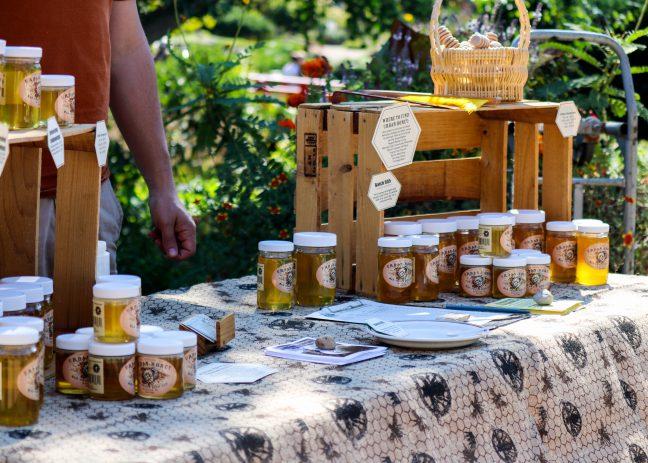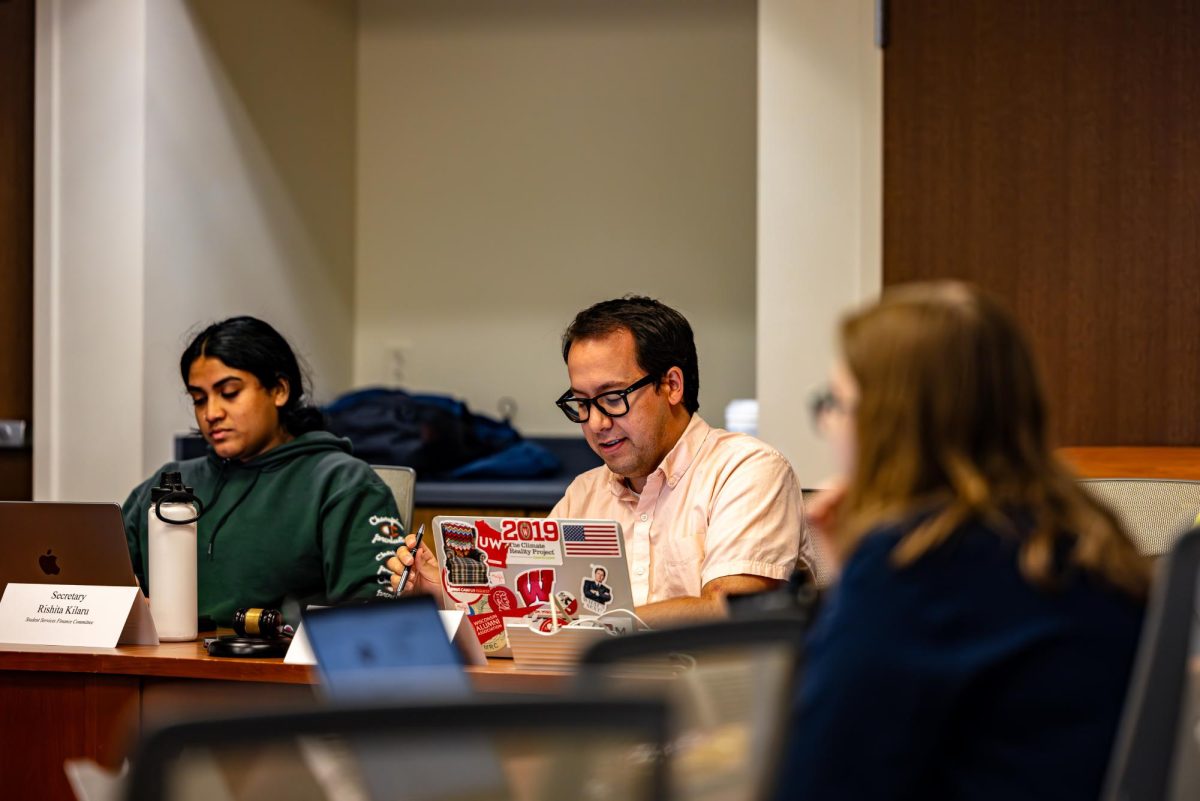A PhD student in the University of Wisconsin Nelson Institute for Environmental Studies is conducting research at the Landscape Conservation Lab on bee habitats in urban areas.
Vera Pfeiffer’s research involves examining bumblebee foraging patterns to learn what makes a good habitat for bees in urban areas.
Pfeiffer believes her research will provide information on what limiting factors are to bee populations so ecologists can find a solution to protect them.
“I wanted to work in a study system where I could work directly with people who could make small-scale land management changes that have a direct effect on making space for animals,” Pfeiffer said.
Bees face many stressors both in undeveloped and in urban areas, UW Arboretum senior outreach specialist Susan Carpenter said. These stressors include loss of habitat, food resources and nesting locations. Other stressors can be pesticide use, disease, climate change and extreme weather.
Pollinators are important to the food chain as pollination supports plants and all levels of the food chain above plants, Carpenter said. Bees are the most effective pollinators, but as urban areas grow, they may lose important habitat.
The whole ecosystem weakens and breaks down without bees and other pollinators, Carpenter said
“The world is becoming more urbanized so when we make bigger and more cities and suburbs, we are inching into other habitats that those pollinators may be living in,” Carpenter said.
Wisconsin communities make efforts to address local pollinator, honeybee decline
Most existing studies have not been done in urban landscapes, Pfeiffer said. Doing research in urban areas can help protect bee populations by making sure the resources they need are available.
Bees need flowers for their main food source of pollen and nectar, Carpenter said. Flowers must be in bloom for the complete season and need to be close to bee nesting habitats. Pavement and buildings in urban areas can disrupt these nesting and flower habitats, Carpenter said.
“Knowing what resources might be important for different groups of bees can then allow us to restore those aspects to areas that might lack those resources,” Pfeiffer said. “By understanding the mechanisms that are limiting the bee populations, we can provide a solution rather than just guessing.”
Bee populations have faced 30 percent loss rates on average across the county, Pfeiffer said.
In an effort to slow the loss of bees within the state, Wisconsin has been coming up with ways to help.
The Wisconsin Department of Natural Resources is introducing the Wisconsin Bumble Bee Brigade, which will allow people to submit pictures of bees and their guesses for the identification of the bee. This will put together a complete story of Wisconsin bees, Carpenter said.
“There are 20 kinds of bumble bees in Wisconsin, so we are looking forward to Bumble Bee Brigade to help us get a much better picture of that for our whole state,” Carpenter said.
In addition to Bumble Bee Brigade, people can add bee habitats in their backyard or in places where they have control over the landscaping to help bees, Carpenter said.
It is easy for people to get involved with bees because they live in urban areas, Pfeiffer said.
Climate Change Symposium keynote points to solutions through animal movement
Adding flowers and plants that are good for pollinators and having appropriate nesting areas such as fallen logs and loose dirt can help build habitat for bees in your backyard, Carpenter said. Limiting the use of pesticides also protect bee populations in urban areas.
“Bees are a great animal organism to appreciate in cities because while some animals need broad expanses of habitat with less influence of people … bees can live in the city just fine,” Pfeiffer said.
Pfeiffer said she enjoys doing research because it’s an opportunity to learn and understand how people can contribute to ecosystems in urban settings. She believes her research has served to remind her that people share the ecosystem with many other species.
Opportunities to learn about other ecosystems are available for students as well. They can do research all around the world with other scientists, Pfeiffer said. Research is a great opportunity for ecologists from all over the world to come together from different ecosystems to learn from each other.
“It’s really cool to learn from each other’s perspectives because ecosystems are different all over the world and you can always learn [using] that comparative approach,” Pfeiffer said.

















